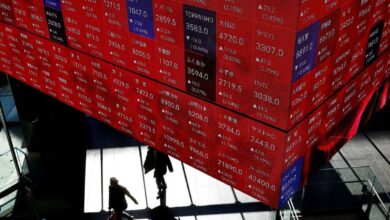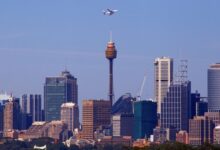International financial markets hail first year of Brazil’s Lula government

Just over a year after the inauguration of Brazilian President Luiz Inácio Lula da Silva, the nationalist and pro-corporate character of the new Workers Party (PT) government has been thoroughly exposed. From its criminal negligence in response to the COVID-19 pandemic to the subordination of education to business foundations, the promotion of the armed forces after the January 8 coup attempt and the fueling of military tensions throughout South America, the PT government has shown itself to be a faithful instrument of the reactionary national bourgeoisie and international finance capital.

The international financial markets and its representatives ended 2023 hailing the economic measures implemented by Lula’s finance minister, Fernando Haddad. A former education minister in Lula’s previous administrations (2005-2012) and former mayor of São Paulo (2013-2016), Haddad is a longtime PT member with a broad right-wing record.
After the Economist wrote last August that Haddad was acting as an “efficient finance minister” and making investors “increasingly optimistic about Brazil’s economy,” the British magazine named Brazil to its “countries of the year” list alongside Poland and Greece.
These “Three countries stand out for turning back to moderation after a walk on the wild side,” according to the Economist. Characterizing the former fascistic president Jair Bolsonaro’s years in office as “mendacious populism” and pointing out that he “refused to accept electoral defeat and encouraged his devotees to attempt an insurrection,” the magazine added that the Lula administration “quickly restored normality—and reduced the pace of deforestation in the Amazon by nearly 50 percent.”
Far from being concerned about the state of bourgeois democracy and environmental problems in Brazil, what The Economist is expressing is the ability of the Lula government to offer a more stable political environment that makes the country safer for foreign investment. As it has made clear, global geopolitical tensions, with the wars in Ukraine and Gaza, are making investors turn to emerging markets like Brazil. The PT government is seeking to exploit the country’s potential to produce “clean energy” to achieve a leading position in the global energy transition.
Last August, The Economist had welcomed Haddad’s ability to approve, in the first half of 2023, a new fiscal regime that it claimed would “replace a rigid spending cap dating from 2016, which has consistently been broken, with a flexible rule” that “limits the increase in primary spending” and could stabilize Brazil’s gross public debt.
In December, the PT government managed to approve a tax reform that has made the Brazilian bourgeoisie even more excited. In Brazil’s biggest change in tax legislation in almost 60 years, the new rule simplifies and merges federal, state, and municipal taxes into a dual value-added tax.
The Brazilian Federation of Banks (Febraban) celebrated the bill, writing that Brazil “got the economy right” in 2023 and praising the Lula government’s “commitment to reforms and a pragmatic approach to conducting economic and monetary policy.” The National Confederation of Industry (CNI) also welcomed the tax reform, saying that it “will eliminate distortions that reduce the competitiveness of industry” at a “time when the country is discussing how to promote the neo-industrialization of the Brazilian economy,” a declared intention of Lula.
The approval of the tax reform was the main reason why Standard & Poor’s increased Brazil’s credit rating at the end of last year from BB- to BB, with a stable perspective. It was the first increase since 2011. In July, after the approval of the new fiscal regime, the ratings agency Fitch had upgraded Brazil’s long-term foreign-currency debt for the first time since it was downgraded in 2018.
Significantly, S&P emphasized that the tax reform approved by the PT government is part of a broad set of “pragmatic policies” implemented in Brazil over the last seven years. Those policies constituted brutal attacks against social and economic rights of the Brazilian working class, including the 2017 labor reform by Michel Temer’s government and the 2019 pension reform enacted by Bolsonaro.
The policies of the first year of Lula’s administration represent a continuation and deepening of the attacks on the working class and the poor promoted during the 13 years (2003-2016) in which the PT was the preferred party of the bourgeoisie in Brazil.
In 2024, in addition to cuts in social spending due to the prospect of a worsening world economy and the implementation of the new fiscal regime, it is expected that social spending will be even further decreased with the proposed “zero deficit target” for the year’s budget that the PT managed to get Congress to approve in December. In order to meet this target, the budget includes a freeze of up to 56 billion reais (11 billion dollar) and there is a threat to end the constitutional limits on health and education.
If the financial markets are optimistic about the Lula government, the same cannot be said of federal public administration workers, who are already staging walkouts and strikes against the budgetary restrictions imposed by the new fiscal regime and the “zero deficit target.” The government has not offered wage increases this year for the vast majority of the public sector, only raises in food, health, and childcare benefits, which does not include retirees. After six years of frozen wages under the Temer and Bolsonaro governments, most sectors will only receive a 4.5 percent increase in 2025 and 2026, which doesn’t compensate even for last year’s inflation.
In contrast, Lula announced an increase of up to 27.48 percent in 2024, 2025 and 2026 for various sections of the federal police and federal highway police, which constitute a loyal base of support for Bolsonaro.
Without the prospect of having even their minimum demands met by the government, the movement of federal public employees intensified at the end of last year with a still ongoing strike by federal revenue inspectors. On Wednesday of last week, 2,000 employees of two Brazilian environmental agencies held a one-day strike for a pay raise and career improvements. This Thursday, employees of the Central Bank also held a one-day strike in what is expected to be the largest strike in the sector.
Teachers and staff at federal universities, who will see their budgets cut by 310 million reais ($63 million) compared to last year, are also threatening to go on strike. The National Association of Higher Education Teachers (Andes) characterized the Lula government’s proposal as “disrespectful” and stated that the PT government “maintains the Bolsonaro government’s wage freeze policy.” Administrative technical staff approved a “state of strike” for this month, with the possibility of a strike in the first quarter of the year, preventing the school year from starting.
Under these conditions, the Brazilian trade union federations and the pseudo-left are doing the dirty work of supporting the Lula government’s austerity measures and covering up its attacks.
The CUT, Brazil’s largest trade union federation, controlled by the PT, supported both the new fiscal regime and the tax reform. Throughout 2023, it worked with Labor Minister Luiz Marinho for the reestablishment of union funding mechanisms after compulsory union dues were abolished by the 2017 labor reform.
Meanwhile, the Brazilian pseudo-left, especially the Morenoite and Pabloite tendencies within the Socialism and Freedom Party (PSOL), have insisted that Lula must implement his campaign promises, allegedly “putting the poor on the budget” and repealing the labor, pension, and high school reforms. While Lula never committed to these measures, these promises were cynically made by the pseudo-left itself in order to justify its support for the PT’s reactionary capitalist election campaign.
With all the celebration of the financial market over the austerity measures led by minister Haddad, the pseudo-left and sections of the PT itself, including the party’s president, Gleisi Hoffmann, are making a farcical attempt to separate Haddad from Lula in order to preserve the president’s “left-wing” image.
What is emerging with increasing force is the certainty that the reactionary anti-working class policies of the new Lula government will pave the way for the strengthening of the extreme right and its possible return to power in the next elections. This political phenomenon was already seen in the election of the fascistic Bolsonaro amid the popular discrediting of the PT after its implementation of capitalist adjustment programs and its leading role in vast corruption scandals. More recently, the same phenomenon has been seen in Argentina too, where the fascistic Javier Milei used the enormous discrediting of Peronism to pose as a political alternative.
As the WSWS New Year statement explained,
The fact that the right wing is gathering strength has less to do with its intrinsic power than the complete bankruptcy of what passes for the left. Underlying the fecklessness of the various forms of pseudo-left politics – Bernie Sanders and the Democratic Socialists of America in the US; the Left Party in Germany; Podemos in Spain; Syriza in Greece; the “Pink Tide” movement and the backers of Lula in Latin America – is genuflection before the holy of holies: private property, corporate profits and personal wealth. … The “socialism” they dream of is one that can be achieved without causing a fall in share values on Wall Street, that is, a socialism without the class struggle, without the expropriation of the ruling class, and without the transfer of power to the working class.
In Brazil and internationally, the global crisis of the capitalist system, with the threat of nuclear world war, a pandemic still raging and the resurgence of fascism, must be answered by the development of an international mass movement for socialism. This requires a conscious break with parties like the PT and the unions and pseudo-left satellites that support them, and the building of national sections of the International Committee of the Fourth International (ICFI).

















